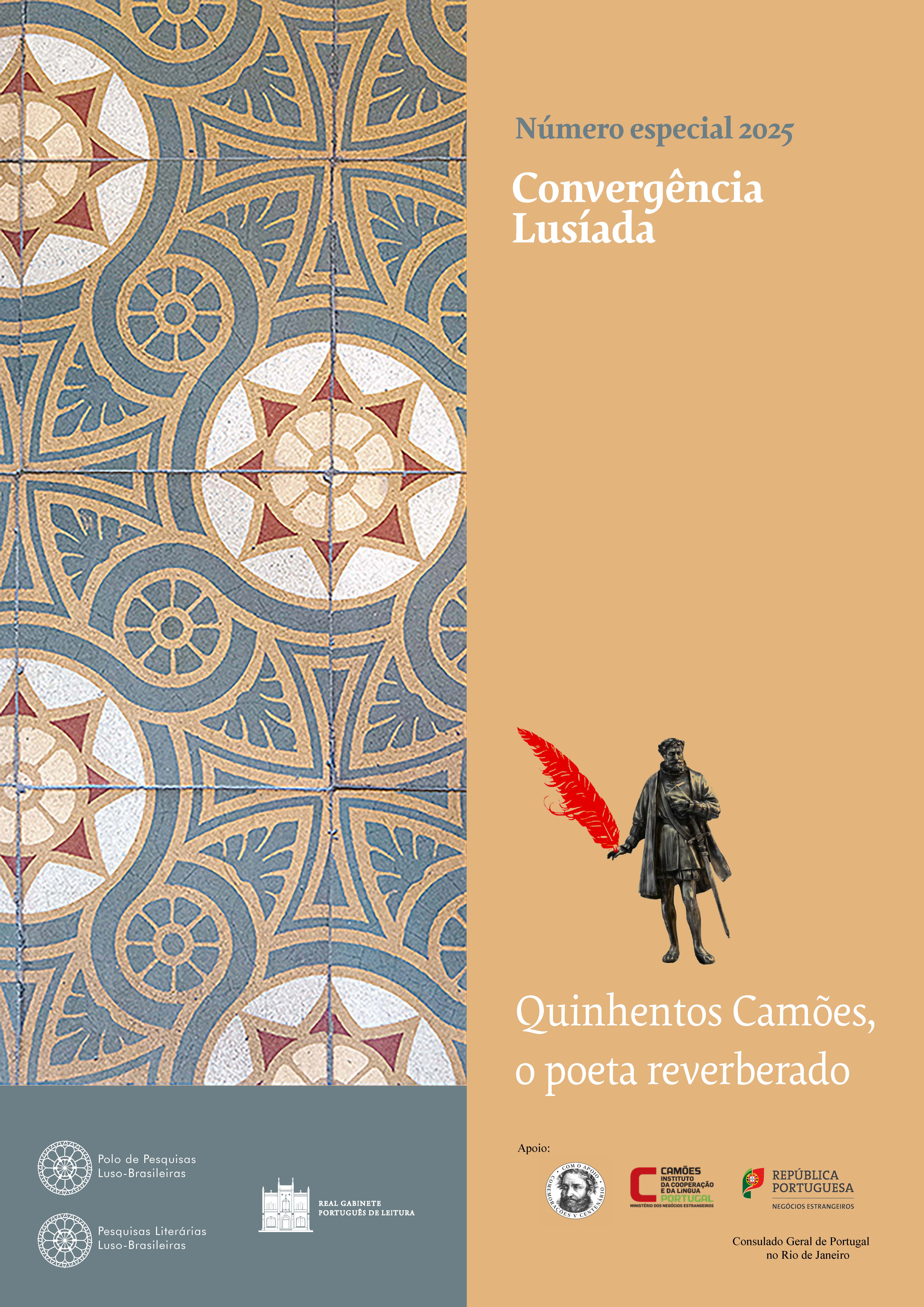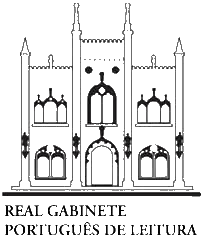Camões poeta e viajante
DOI:
https://doi.org/10.37508/rcl.2025.nEsp.a1360Palavras-chave:
Luís de Camões, Formação intelectual, Experiência, ViagensResumo
Este artigo detém-se sobre a associação entre erudição e experiência em Luís de Camões. Considera, pois, que a formação intelectual do poeta teria ocorrido no Mosteiro de Santa Cruz de Coimbra, e que a sua estadia no Oriente teria sido estimulada por um forte desejo de indagar o mundo. Como exemplo, toma os seus conhecimentos acerca de uma planta culti- vada numa ilha das Molucas.
Downloads
Referências
ALBUQUERQUE, Martim de. A expressão do poder em Luís de Camões. Lisboa: Imprensa Nacional-Casa da Moeda, 1988.
CAMÕES, Luís de. A global poet for today. 2. ed. Edição de Helder Macedo; Thomas Earle. Lisbon: Diluvio, 2023.
CAMÕES, Luís de. I Lusiadi. Coordinamento, testo e introduzione Rita Marnoto, traduzione e note Roberto Gigliucci. Firenze, Milano: Giunti, Bompiani, 2022.
CAMÕES, Luís de. Odi. Edição crítica de Barbara Spaggiari. Genève: Centre International d’Études Portugaises de Genève, 2024.
CAMÕES, Luís de. Os Lusíadas. Apresentação Rui Vieira de Castro. Edição de Rita Marnoto. [Porto]: Universidade do Minho, Edições Kalandraka, 2021.
COSTA, José Pereira da. Luís de Camões e outros. Islenha, Funchal, n. 36,
p. 42-63, 2005.
COSTA, Maria Clara Pereira da. O enquadramento social da família Camões na Lisboa do século XVI. Olisipo, Lisboa, ano 42-43, n. 142-143, p. 5-57, 1979-1980.
FARIA E SOUSA, Manuel de. Rimas varias de Luis de Camões. 2 v. Madrid: Imprenta de Theotonio Damaso de Mello, 1685-1689.
FICALHO (Conde de,). Flora dos Lusíadas. Lisboa: Academia Real das Ciências, 1880.
JUROMENHA (Visconde de,) (ed.). Luís de Camões. Obras. Precedidas de um ensaio biográfico […], 6 v. Lisboa: Imprensa Nacional, 1860-1870. (v. 7, inc., 1924).
MACEDO, Helder. Camões e a viagem iniciática. Lisboa: Abysmo, 2013.
MARNOTO, Rita. Camões. Quem é quem. In: MARNOTO, Rita. Sete ensaios camonianos. Coimbra: CIEC, 2007. p. 107-140.
ORTA, Garcia de. Colóquios dos simples e drogas. Goa: Ioannes de Endem, 1563.
PAIVA, Jorge de. As plantas na obra poética de Camões (épica e lírica). In: ANDRADE, António Manuel Lopes; MORA, Carlos Miguel; TORRÃO, João Manuel Nunes (Coord). Humanismo e ciência. Antiguidade e Renascimento. Aveiro, Coimbra, São Paulo: UA Editora, IUC, Annablume, 2015. p. 95-139. DOI: https://doi.org/10.14195/978-989-26-0941-6_5
RAMALHO, Américo da Costa. Camões no seu tempo e no nosso. Coimbra: Almedina, 1992.
RAMALHO, Américo da Costa. Para ahistória do Humanismo em Portugal. Coimbra: Imprensa da Universidade de Coimbra, 2013. v. 5.
Downloads
Publicado
Como Citar
Edição
Seção
Licença
Copyright (c) 2025 Rita Marnoto

Este trabalho está licenciado sob uma licença Creative Commons Attribution-NonCommercial 4.0 International License.
Os autores que publicam nesta revista concordam com os seguintes termos:
a. Autores mantêm os direitos autorais e concedem à revista o direito de primeira publicação, com o trabalho simultaneamente licenciado sob a Licença Creative Commons Atribuição NãoComercial (CC-BY-NC 4.0) que permite o compartilhamento do trabalho com reconhecimento da autoria e publicação inicial nesta revista.
b. Autores têm autorização para assumir contratos adicionais separadamente, para distribuição não-exclusiva da versão do trabalho publicada nesta revista (ex.: publicar em repositório institucional ou como capítulo de livro), com reconhecimento de autoria e publicação inicial nesta revista.
c. Autores têm permissão e são estimulados a publicar e distribuir seu trabalho online (ex.: em repositórios institucionais ou na sua página pessoal) a qualquer ponto antes ou durante o processo editorial, já que isso pode gerar alterações produtivas, bem como aumentar o impacto e a citação do trabalho publicado.

A Revista Convergência Lusíada utiliza uma Licença Creative Commons - Atribuição-NãoComercial 4.0 Internacional.









